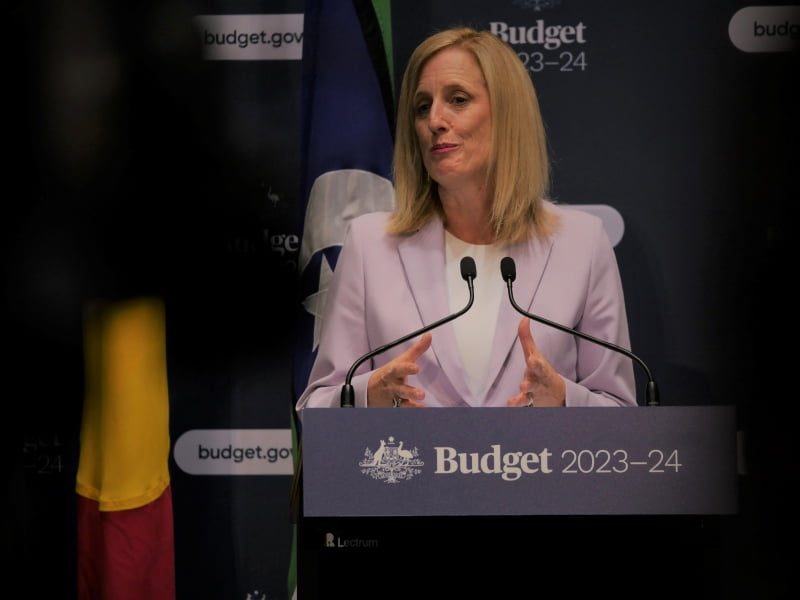The federal government will invest more than $2 billion in a four-year overhaul of digital platforms as it seeks to rebuild the service delivery footings of the Australian Public Service.
In Treasurer Jim Chalmer’s second Budget, unveiled on Tuesday night, the government acknowledged the centrality of modern ICT systems to drive efficiencies and improve service delivery, while also saving taxpayer dollars.
“The APS performs a critical role in our democratic system, it should be valued by government, and be focused on serving our citizens. Digital and ICT capability is crucial to deliver easy, accessible and secure services for people and business,” Finance minister Katy Gallagher said.
But for all the new funding, a ‘Digital Readiness Fund’ – flagged by Canberra’s most senior bureaucrats earlier this year to provide funding outside of the budgetary process like in New South Wales – was conspicuously absent from the Budget.

A number of measures have been assured long-term funding through the government’s Contingency Reserve, including myGov, which will receive $134.5 million over the next year while the government considers its “next steps”.
Ongoing work at the Australian Bureau of Statistics to modernise and replace its legacy ICT systems, under a program dubbed ‘Big Data, Timely Insights Phase 2’, has also been partially funded from the Contingency Reserve.
Budget documents show this decision has been taken “pending further development of ICT system requirements, as part of the government’s commitment to ensuring that critical future investment is properly scoped and provides maximum value for the taxpayer”.
The initiative will see $156.7 million invested over the next four years to “support the transition of key data assets to a secure cloud environment, including the Consumer Price Index and four key business surveys.”
The My Health Record will receive $429 million over the next two years, including money for upgrades called for by an expert taskforce that found the system was a contributing factor in poor data sharing across the healthcare sector.
A further $254.1 million has been allocated to the Department of Veterans’ Affairs to replace, enhance and sustain new and at-risk legacy ICT systems, building on the funding provided in the October Budget.
The government has also funded the second tranche of the Australia Electoral Commission’s once-in-a-generation ICT modernisation project, but the exact figure is not-for-publication due to “ongoing commercial negotiations”.
At Home Affairs, the government will improve existing visa processing system using $75.8 million in funding over two years that will also be used to extend the current surge workforce that is working to process visas.
Home Affairs has also pocketed $163.2 million from the failed whole-of-government permissions capability platform, which was scrapped in December after at least two years and $16.5 million was sunk into the project, as revealed by InnovationAus.com.
The Department of Health and Aged Care, meanwhile, is set to receive $73.1 million for the “design, build, implementation and sustainment of ICT changes necessary to enable the new Support at Home Program”.
The government has also set aside $59.5 million over five years for “ICT infrastructure to establish a national worker screening and registration scheme,” and $43 million over two years for “ICT infrastructure to prepare for future pandemic events and extend existing COVID-19 programs”.
The Department of Employment and Workplace Relations will receive $42.2 million over four years for a new digital solution for the VET Student Loans programs, and $36.9 million over five years for the Department of Education to “optimise the Tertiary Collection of Student Information system”.
After a delay in the transfer of historical tertiary education loan records to the Australian Taxation Office last year, the government will also “forgo” $5.4 million over five years to support impacted students.
The Department of Finance will receive $4 million to improve the “governance, operational support for clients and transparency of parliamentary expenses” in its Parliamentary Expense Management System.
More 2023 Budget coverage:
Chalmers stumps up $392m for new Industry Growth Program
Budget 2023: $2bn for green hydrogen production credits
Defence commits $151m to AUKUS pillar two
My Health Record gets $429m for technology upgrade
Govt backs Quantum and AI industries with $101m
Full Monty ambition for critical minerals supply chains
STEM programs get a tickle rather than an upgrade
myGov gets Budget certainty, new money flows to Digital ID
APS in-house consultancy locked in with $11m
eSafety resources quadruple as national cyber office funded
Do you know more? Contact James Riley via Email.

